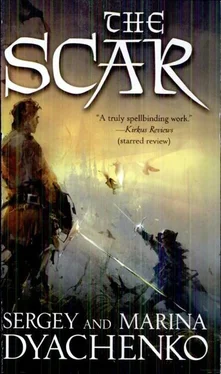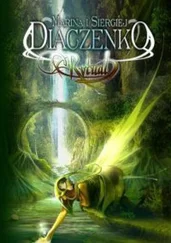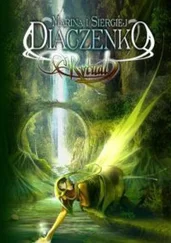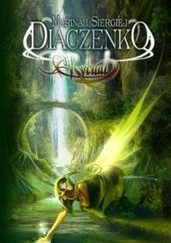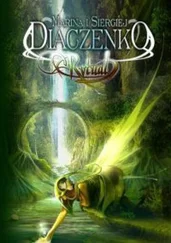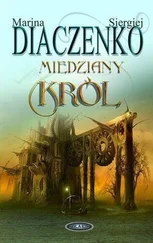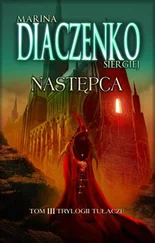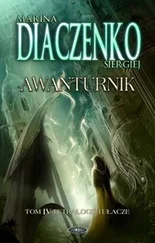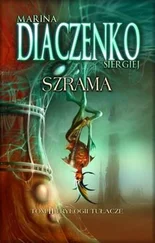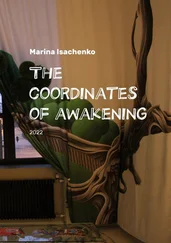Then he raised his head.
The days of interrogation had not been kind to her. Meeting Egert’s eyes, she tried to smile: almost guiltily because her bitten lips had no desire to obey her. Her black hair was pulled back with unusual precision; it was smoother than usual. Her bloodshot eyes were dry. The guard sat Toria down in the prisoner’s dock. With an obvious display of disgust, she moved away from the touch of his hand and once again looked at Egert. He tried to answer her look with a small smile of his own, but he could not bear it and turned his eyes away, right into the gaze of Fagirra.
The executioner sighed loudly, and his sigh echoed over the entire hall because just at that moment a breathless hush had settled over the crowd. The prosecutor stood up and flung off his hood with an abrupt movement.
Egert felt Toria’s horror. She even flinched when Fagirra looked at her. At the thought that the man had tortured her with his own hand, Egert’s jaw clenched with the desire to kill him, but fear soon overrode that desire and returned everything in his soul to its accustomed place.
Fagirra began to recite the prosecution’s charges, and from the very first word Egert understood that it was hopeless, that Toria was doomed and that no mercy would be given.
Fagirra spoke simply and plainly. The people listened to him with bated breath, and only in the back rows was there any whispering: the words of the prosecutor were being transmitted along the chain to the square. From his words, as considered and precise as the work of a jeweler, it incontestably followed that the dean had long planned to blight the city and that his daughter, of course, helped him. Fagirra mentioned such details and produced such proofs that Egert’s heart began to ache: either a spy of the Order had been hidden in the university for a long time or Toria, under torture, had told Fagirra about the most private, most secret details of her father’s life. The crowd became indignant; Egert felt how their righteous anger spread along the chain beyond the walls of the court, how the human sea on the square was filled with wild rancor and the thirst for retribution.
Toria listened, cringing internally. Egert felt how she tried to gather together her scattered thoughts, how she flinched from the accusation as if from blows. Her hope, which had flared up at the sight of Egert, now gradually faded like a smoldering coal.
Glancing intently at Egert, Fagirra finished his speech, flipped his hood back over his head, and approached the judgment seat. One by one the witnesses were called to the stand at a sign from the magistrate.
The first, a fleshy merchant, had the most difficulty: he did not know what to say, and so he simply lamented his losses, somewhat inarticulately. He was listened to with sympathy, for every man in the crowd could say the exact same words in his place. Everyone who was called up to the witness stand after the merchant behaved similarly; the lamentations were repeated; women cried, enumerating their losses. The crowd hushed, borne away into grief.
Finally the flood of witnesses of the Plague dried up. Some lad from the crowd started yelling out his own experiences, but he was quickly admonished to keep quiet. As if it were a single entity, the gaze of the crowd, stern and sour, lunged at the accused. Egert felt a slap of hatred strike Toria. Groaning noiselessly, he jerked on his bench, wishing to shelter and defend her, but he remained seated while the magistrate coughed something and the clerk repeated that now the prosecutor would question the defendant.
Toria stood up, and that single movement cost her agonizing effort. Egert felt how every nerve, every sore muscle quaked. Taking the stand, she quickly glanced at Egert, who leaned forward, silently supporting, embracing, and reassuring her. Fagirra walked close to the stand. A convulsion passed over Toria’s entire body, as if the intimate presence of the robed man was unbearable to her.
“Is it true that Dean Luayan was your father?” Fagirra asked loudly.
Toria—Egert knew what effort it cost her—turned her head and looked him straight in the eye. “Dean Luayan is my father,” she replied brusquely, but loudly and steadily. “He is dead, but he still exists in the memory of the thousands who knew him.”
The hall, which had been silent, broke out into whispers.
Fagirra’s lips quivered slightly. It seemed to Egert that he was about to smile. “Well. Daughterly affections are commendable, but they do not justify the deaths of hundreds of people!”
Egert felt Toria flinch as she tried to overcome her pain and fear.
“Those people were killed by you. You hooded executioners! And now you weep over your victims?! On the night the Plague appeared”—Toria turned toward the hall—“on that very night—”
“Save your breath! Answer the questions without superfluous words,” Fagirra interrupted her. “On that very night, you and your father performed certain magics in his locked study. Yes or no?”
Egert realized how terrified she was. Fagirra stood next to her, piercing her bloodshot eyes with his gaze.
Toria staggered under his aggression. “Yes. But…”
With a sweeping, eloquent gesture, Fagirra turned to the magistrate, then to the hall. “Hundreds of candles burned all night in the dean’s study. Your loved ones were still alive. In the morning, dogs howled throughout the entire city, and your loved ones were still alive, but then the Plague descended, called forth by these conjurers.”
“A lie!” Toria wanted to shout, but her voice broke. She glanced at Egert, pleading for help, and he saw how her hope died.
“A lie…,” echoed from the corner where the students lurked. The crowd grumbled so loudly that the clerk banged on his table and the guards held up their pikes.
Encouraged by this unexpected support, Toria regained control of her temper. Egert felt how a desire broke through the black pall that shrouded her mind: a furious desire to resist, to denounce.
“It’s a lie that the Plague came through the will of my father. It was the Order of Lash that summoned death to us. They went to the hill where the victims of the plague were buried and dug it up! They let death go free!”
The crowd hummed loudly. Egert held his breath: he thought that the truth said loud enough was capable of changing the court’s direction.
“Did you see this yourself?” asked Fagirra.
“Yes!”
“But where?”
“In the enchanted—” Toria stopped and then ended the sentence in a hoarse voice. “—in the enchanted mirror … in the water…”
“In the water,” repeated Fagirra turning to the crowd, chuckling. “I’m sure that that’s not the only thing the mage can show ‘in the water.’”
There was an nervous laugh in the hall.
“Listen!” Toria gathered the last bits of her strength. “The Order of Lash is strong where everyone is afraid! Where people wait for the End of Time! The Order of Lash committed a crime to regain its former power! Has anyone ever seen the Lash facilitators bring people anything but fear? Who among you knows what the Order of Lash really is? Who among you knows what plans they nurture under their hoods? And who among you would not affirm that my father never brought evil to anyone in his whole life? Can even one of you ever recall him harming so much as a dog? With the help of magic or without it, he served at the university for decades. He worked for the good, and he is the one who saved all of you from the Plague. He sheltered us with his own body. He gave up his life, and now—”
Toria reeled from a sudden, resurgent pain; the tortures she had endured had left a multitude of agonizing marks on her body. Egert bit his hand, drawing blood. The crowd buzzed deafeningly. Astonished people repeated to each other the words of the accused, conveying them to the square, and it is possible that her words sowed doubt in some souls. The students stood strong, a fortress, a citadel of support for Toria. From the corner of his eye, Egert noticed the headmaster being buffeted toward the exit, holding on to his heart.
Читать дальше
